Even though the Aung San Suu Kyi led National League for Democracy (NLD) won the November parliamentary elections with a thumping majority questions regarding smooth transition of power are being asked. Will the military dominated government of President Thein Sein transfer power voluntarily and peacefully given the nature of the legacy bequeathed by various Tatmadaw led governments in the past?
Such imponderables indicate apprehensions about the likely post election behaviour of the government.
Looking at the election results one can gauge the popularity of NLD or for that matter the unpopularity of military led Union Solidarity and Development Party (USDP). NLD won 886 seats out of a total of 1150 that include both the Union and regional assemblies’ seats. In Union Parliament NLD won over 59 percent of all seats even after 25 percent of the reserved seats for the military (110 out of 440 in the Lower House and 56 out of 224 in the Upper House) are accounted for. But if the military seats are discounted the nature of victory is even more astounding in that NLD went on to win almost 80 percent of the seats that were being contested.
Further, even in most of the regional parliaments NLD scored big time by winning over 75 percent of all elected seats. However, NLD could not secure majority in Shan and Arakan State legislatures. In any case the USDP fared badly in the Union Parliament by obtaining 41 seats which is 6.2 percent of the total seats. Overall the USDP stands thoroughly beaten at the hustings thus losing the right to govern or rule or bring about any major changes in governance/administrative systems till the new government is installed in end March next year.
However, the long gap between the elections and taking over the reins of power by NLD is fraught with uncertainties as to whether President Thein Sein and military will keep the promises. His term will end In March 2016. For the record both the president and Commander in Chief Gen. Min Aung Hlaing have committed to smooth handover of power to the NLD. It was only after about a month or so that both President and Gen. Hlaing held separate meetings with Suu Kyi to discuss the modalities for power transition and aspects of cooperation by the military and the current government.
In another positive development ex-President Than Shwe who was instrumental in bringing in the current dispensation through elections in 2010 held talks with Suu Kyi in first week of December and ‘pledged to support the NLD leader as best he can if she genuinely works for the development of the country’. According to some analysts the talks with Than Shwe who apparently still exercises a degree of influence over the outgoing government as also in military circles could contribute positively to the ongoing discourse.
On the other hand there have been concerns voiced against the USDP government that in order to maintain its grip over the bureaucracy it had announced the reintroduction of permanent secretaries for government ministries in April and most of them were former military officers. However, the government claims that this was a necessary step for smooth transition. The policies would be formulated by the new government and the Secretaries would implement them. Instructions have been issued to the ministries to make preparations for transfer of power by end March.
The tasks before Suu Kyi are indeed very challenging; first she cannot become the President because of bar placed by the military drafted Constitution of 2008 and therefore, has to rule through proxy. Getting the Constitution amended is also next to impossible as three-fourth majority is required and a quarter of the parliamentary seats are already occupied by serving military members. Ruling through proxy has its own disadvantages. There are, of course, alternative paths of going through a national referendum to obtain a popular vote for amending the Constitution.
Secondly, she has to tread very carefully when it comes to sensitivities of the military lest the ruling Generals might return to their old ways. On her part she has stated that she holds no grudges against the military even though they had imprisoned her for many years. So far, it appears that Generals also need Suu Kyi as she might be their best bet to prevent retribution. Further, the prevailing international and domestic environment is such that there might not be any appetite for the return of generals in a major way.
Thirdly, it is unlikely that Suu Kyi led NLD would be in a position to go in for a rapid movement on political, economic and security sector reforms. Instead, a gradual and incremental approach to reforms in these sectors is more likely. A fast track action on ushering in democratic and economic reforms, though very necessary, would upset the embedded vested interests that might lead to instability and hurdles being placed for realization of the objectives and goals of reforms.
Top of the agenda for the new government’s efforts has to be geared towards achieving national reconciliation. Here inclusion of all the respective stakeholders irrespective of how various political parties or ethnic groups etc fared in the elections is an imperative. Thein Sein’s administration could only reach a ceasefire accord with eight of ethnic armed groups before the elections. Many important armed groups of Kachins, Shan State and Wa State were left out. The military is still attacking some of these groups. Based on previous agreements a degree of federalism is necessary for national reconciliation. The military, though, in favour of a unitary state needs to move away from some of the rigid positions it has adopted on granting a degree of autonomy to regions and divisions.
In a way military justifies it’s hold on levers of power because of ongoing conflicts with the ethnic armed groups and paints itself as a guardian of national security. Thus it serves military’s interest to continue with such conflicts. Though, it may not be a very apt analogy it is something like what Pakistan Army is adept at doing. First it creates insecurity in the region and at home and then it offers its servicesto deal with the sources of insecurity thus maintaining its preeminent position in the power structure. Will the Myanmar military move in that direction in the coming years is a moot question.This will largely depend upon the political acumenand sagacity of leaders like Suu Kyi and her advisors who would have a tough task in maintaining a balanced relationship with Tatmadaw.
The international community has also been enthused by the massive mandate received by NLD and it is incumbent on Suu Kyi that she moves towards capitalizing the positive climate for inviting investments from the US, West, ASEAN countries, India and of course China. With opening up of Myanmar both the international community and Nay Pi Taw will gain economically.
In so far as India is concerned it needs to intensify its engagement with the new government and implement a number of regional connectivity projects that are under way. Myanmar will remain crucial to India’s Look East Policy now converted to Act East Policy. Landslide victory of Suu Kyi in elections offers many opportunities to India for diversifying its relationship with a new emerging Myanmar that is rich in many ways.
Published Date: 10th December 2015, Image Source: http://www.ndtv.com
(Disclaimer: The views and opinions expressed in this article are those of the author and do not necessarily reflect the official policy or position of the Vivekananda International Foundation)

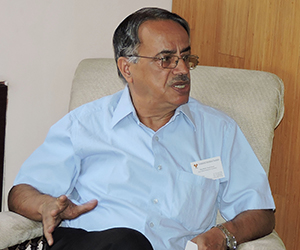


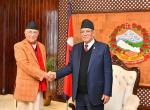
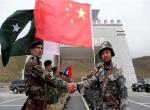

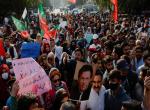
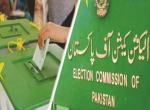
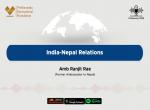
Post new comment